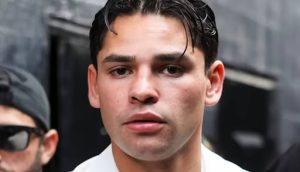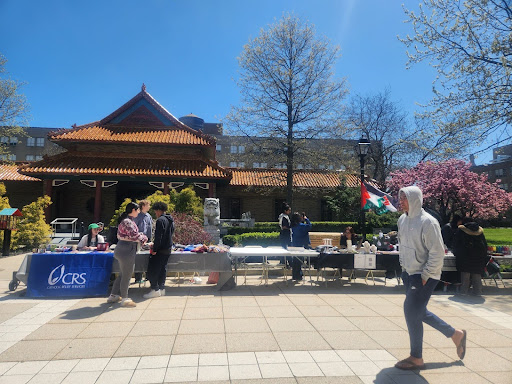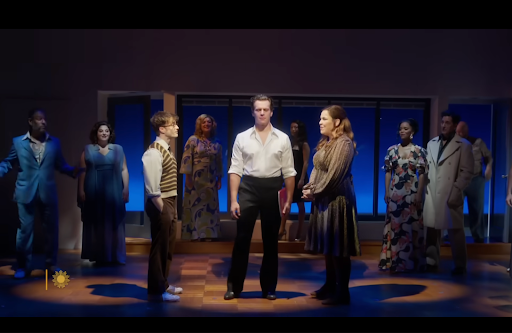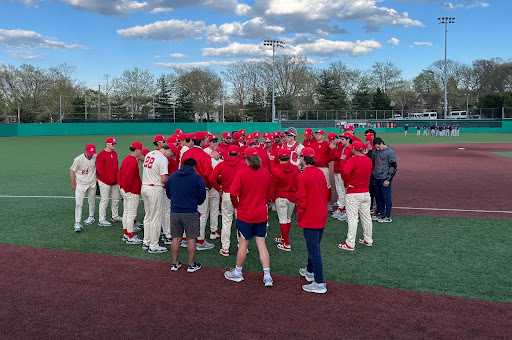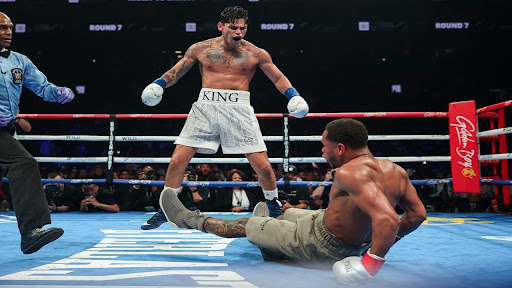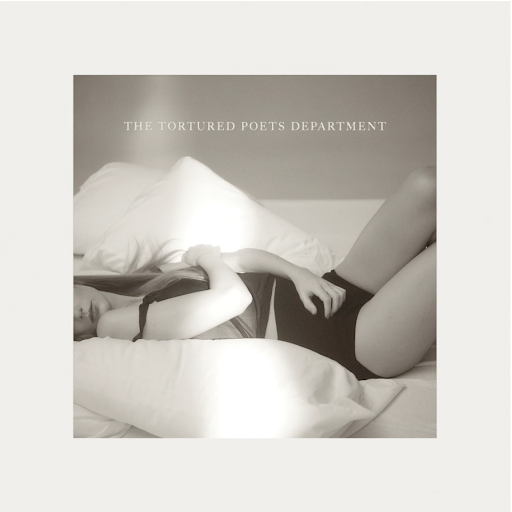A lecture presented last Wednesday by the Students for Global Justice sparked debate about the organization’s commitment to aggressively pursue the issue of labor rights because it was organized in part by the Rev. Donald J. Harrington, C.M., president of St. John’s and the Rev. James Maher, vice president for University Ministry.
“I was hesitant to bring my class there because St. John’s was using its role as an educator to kind of diffuse concern over its commercial relationship with Nike. To me that’s what it’s all about,” said sociology professor Michael Indergaard.
“The thing I would say is come and see for yourself,” Maher said. He noted that many had the same criticism of the Global Alliance until the group put out a report that was highly critical of Nike and labor practices around the world.
“People used to say that about the Global Alliance, they don’t say it anymore,” he said.
Leeanne Burke, vice president of Students for Global Justice insisted that the students are not at all restrained by the University. “This came out of Student Life just because that’s the process. As any student organization, you need to go through channels.”
While similar organizations at other schools get involved with boycotts and other protests, Burke said that St. John’s mission statement might preclude some forms of protest. “We’re not opposed to it [protesting]. It’s just hard because this is a Catholic University. Since we’re Catholic, we have a mission statement to follow so to not get ourselves in trouble, we are trying to be very cautious of what we do and what we don’t do.”
Maher said he doesn’t understand how the Vincentian mission would prevent anybody from engaging in protest activities. “I certainly wouldn’t feel that way,” he said.
Burke added that the club plans to start slow and focus on awareness. “We believe that protests are effective to some extent but we decided as a group that, just for the semester, that we’d start out informational. We’re really just trying to start small.”
Maher sees the priorities of the club as being two-fold. “Our goal is to be very clear about the Vincentian Mission and also to not ignore the complexity of global manufacturing and global business.” The club wants to explore the issues associated with the global labor issues while keeping the University’s position on the value of human dignity at the forefront.
Some don’t believe the club is accomplishing that mission. “I think the University could be doing a lot more to help workers in sweatshops and Students for Global Justice could be doing a lot more. I think they are just presenting what the University wants them to present,” Jason Cassese, president of the Student Sociological and Anthropological Association said.
Mil Niepold, Director of Programs for Verite, a global non-profit that monitors and remediates factories, addressed the more than 200 students and faculty in the Little Theater last Wednesday. She said that factories have become expert at being audited and consequently information about conditions and workers’ rights is not getting out.
Niepold’s presentation, “Peter and the Wolf,” explained that factories make their living by meeting the demands of American consumers. Right now, the demand is for audits and they are meeting that demand. This is a real problem for workers whose rights are not being protected.
“If they [the workers] find that after five or six years of talking to auditors that that fire exit is still left locked, women are still being raped, people are still being abused, then they’re going to stop talking. Well, if you stop talking to the auditors, there goes the best part of the program.”
While the average audit lasts just four hours, Verite spends a couple of days taking tours, interviewing workers and going over the books in the factory. “Our auditing is based on the worker interview process and if you stop doing that, then all the companies in this country are not going to know what’s going on and the workers are not going to get any remediation whatsoever.”
According to Niepold, Verite, a non-profit that does fee-for-service audits, has done about 700 hundred audits since 1995 while other firms boast having done about 5,000 in the same amount of time.
“In this particular industry, I think it’s a good thing to be as small as we are because we do very, very in-depth work. We’re actually proud of the fact that we haven’t done as many as some other firms,” she said.
Some in the audience were not impressed with the way things were presented to the students. “It was a mix of information and disinformation,” said Indergaard.
Niepold’s attempt at distancing Verite from the other auditing firms while doing the same fee-for-service audits is what concerned Indergaard. “I’m afraid it’s substituting some kind of professionalized activity for the more confrontational protest activity. That’s the element of disinformation, that’s kind of a distortion.”
Indergaard said the presentation felt somewhat like a rival sales pitch adding that fee-for-service audits create a subtle conflict of interest.
“It’s the same thing as Arthur Andersen and Enron. If you don’t have a clear separation of interests and distance yourself from the viewpoint of the corporation it’s easy to be compromised in terms of your evaluative functions. I would assume that corporations are going to create relationships with auditing entities that are less likely to rock the boat and take less critical positions.”
Niepold stressed the fact that the auditing itself is in some ways the least important step. “The most important step after you go in is to assess what you see, train people in what can be done to make a difference and then finally get down to do remediation work.”
She mentioned a relief fund that Verite set up for workers that she hopes to expand in the future.
Some students were surprised to find that organizations like this were available on campus. Joe Branca, a freshman majoring in government found the lecture informative to that extent. He plans to join Students for Global Justice. “I’m glad that I went just to join an organization and to maybe make it more that what it is.”



